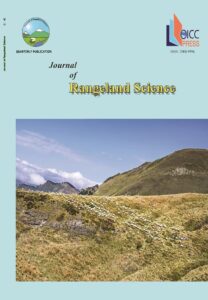Effects of Salinity Stress on Seed Germination Characteristics of Two Medicinal Species Thymus kotschyanus and T. daenensis
Authors
Abstract
The genus Thymus is perennial medicinal plants belong to the Lamiaceae family
that is used for different propose in pharmaceutical industry. Environmental stresses,
particularly salinity, are considered as the major factor reducing plant growth. The purpose of
this study was to investigate the effects of salt stress on germination characteristics and
seedling morphology in two medicinal species of T. kotschyanus and T. daenensis. A factorial
experiment was conducted using completely randomized design with four replications and
seven salinity levels. The salinity factor were included of 0, 50, 100 150, 200, 250 and 300
mm NaCl. Data were collected for germination percentage, germination rate, time means of
germination, radicle length, plumule length, seed vigor, and allometry ratios. The overall
means of germination percentage, germination rate, radicle length, and seed vigor were lower
for T. daenensis as 41.44, 0.28, 1.15 and 1.87 than those for T. kotschyanus as 54.32, 0.37,
1.81 and 2.8, respectively, indicating more tolerant to salinity for T. kotschyanus than that for
T. daenensis. Results showed that by increasing salinity, the germination percentage, rate of
germination, plumule length, radicle length, and seed vigor were reduced in both species. The
slop of reduction was higher for T. daenensis than T. kotschyanus. In other words, T.
kotschyanus was more tolerate to salinity than T. daenensis. It was concluded that this genus
could be cultivated in environments, which plants are not in expose to salinity.


